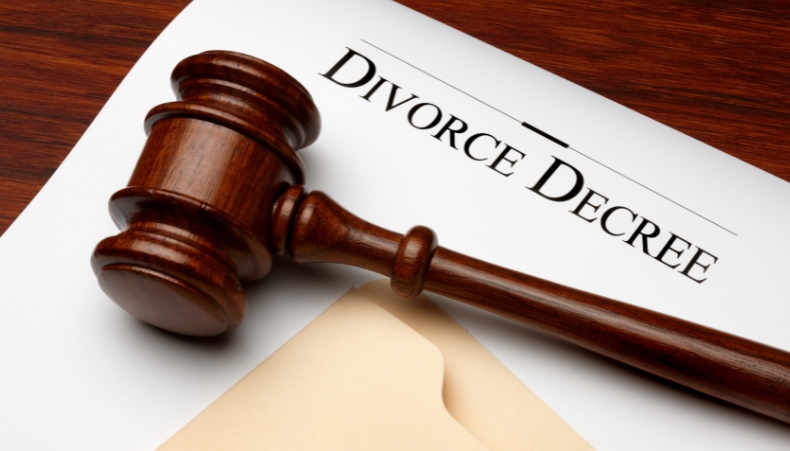
In the complex landscape of divorce proceedings, the division of professional practices presents unique challenges, especially in Georgia. A spouse who is a doctor, accountant, engineer, or other private practitioner will want to protect their business, while their husband or wife may also be entitled to certain interests.
This guide explores the intricacies of how professional practices are handled during divorce in the Peach State, offering valuable insights for those navigating this difficult terrain.
When a marriage dissolves, and one or both spouses own a professional practice, the division of this asset becomes a critical component of the divorce settlement.
A spouse’s business may be considered their own separate property if they started it before getting married. However, in Georgia, professional practices are typically considered marital property if they were established or significantly grew during the marriage. When a business is deemed marital property, it will be subject to division between the spouses during divorce.
Professional practices can encompass a wide range of businesses, including:
Each type of practice comes with its own set of valuation challenges and considerations during divorce proceedings.
Georgia follows the principle of equitable distribution when dividing marital assets in a divorce. This means that property is divided fairly, but not necessarily equally, between spouses. When deciding how to divide assets, the court takes into account a number of variables including:
In the context of professional practices, this can lead to complex negotiations and valuations.
One of the most challenging aspects of dividing a professional practice in a divorce is determining its value. Unlike tangible assets like real estate or vehicles, professional practices often derive much of their value from intangible assets such as goodwill, client relationships, and the professional's expertise.
Various methods can be used to value a professional practice. Some common valuation methods are:
Typically, a forensic accountant or business valuation expert is brought in to conduct a thorough analysis and provide an expert opinion on the practice's value.
Goodwill refers to intangible assets that add to a business’s value. It could be, for example, the ideal location of the office or the excellent brand reputation that the practice has built. Goodwill is often a significant component of a professional practice's value. In Georgia, courts recognize two types of goodwill:
Distinguishing between these two types of goodwill can be challenging and often requires expert testimony.
When it comes to actually dividing a professional practice in a Georgia divorce, various strategies may be employed:
In many cases, the spouse who owns the practice will buy out the other spouse's interest. This often involves:
Sometimes, the value of the practice can be offset against other marital assets. For example, one spouse might keep the whole practice while the other receives a larger share of retirement accounts or real estate.
In rare cases, ex-spouses may continue to co-own the practice after divorce. This is more common in situations where both spouses were actively involved in running the business.
If an agreement can't be reached, or if neither spouse wishes to continue running the practice, selling it and dividing the proceeds may be the best option.
For professionals concerned about protecting their practice in the event of a divorce, several legal measures are available:
A well-crafted prenuptial agreement can specify how a professional practice will be handled in the event of a divorce. This is particularly useful for practices established before marriage.
Similar to prenuptial agreements, postnuptial agreements can be created after marriage to outline how assets, including professional practices, will be divided in case of divorce.
Keeping the practice's finances separate from personal and marital finances can help establish it as separate property.
Dividing a professional practice during divorce often comes with unique challenges:
Some professions have restrictions on who can own or operate a practice. This can complicate division strategies, especially if the non-professional spouse seeks partial ownership.
The division of a professional practice can have significant tax consequences. It's crucial to consider these implications when negotiating a settlement.
The value of a professional practice can fluctuate significantly over time. This can lead to disputes about the appropriate valuation date and method.
In fields like law or medicine, client confidentiality can complicate the valuation process, as it may limit access to certain information.
Given the complexities involved, expert assistance is often crucial in divorce cases involving the division of professional practices. Key experts may include:
Georgia courts have consistently held that professional degrees and licenses themselves are not marital property subject to division. However, the increased earning capacity resulting from these credentials is often considered when determining alimony or property division.
In recent years, there has been an increasing recognition of the complexities involved in valuing and dividing professional practices. Courts are showing a greater willingness to consider detailed expert testimony and complex valuation methods.
The division of a professional practice during a Georgia divorce requires expertise and thorough legal consideration, especially when the process gets complex and emotionally charged. Get the assistance of experienced professionals, including a knowledgeable divorce attorney, to help secure a fair and equitable resolution.
If you’re facing the prospect of dividing a professional practice in a Georgia divorce, reach out to Attorney Sharon Jackson, LLC. With nearly two decades of experience in Georgia family law, Attorney Jackson is knowledgeable and strategic in handling complex property division cases. Call us at (678) 909-4100 for expert guidance tailored to your specific situation.
Attorney Sharon Jackson LLC
175 Langley Drive, Suite A1
Lawrenceville, GA 30046
Phone: (678) 909-4100